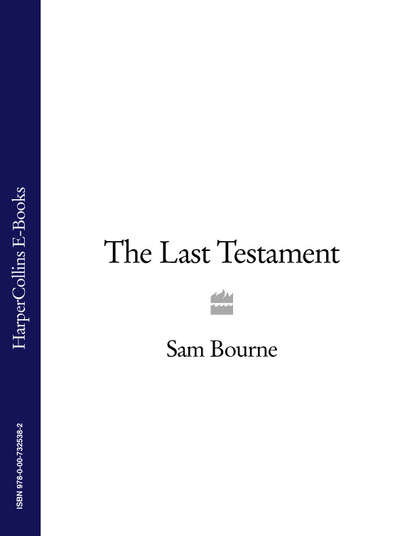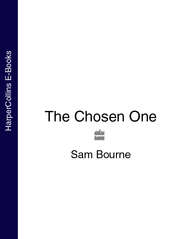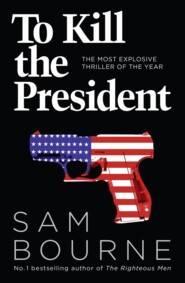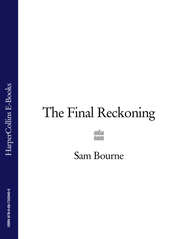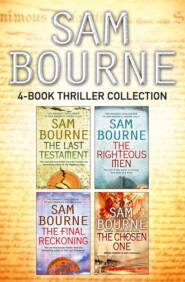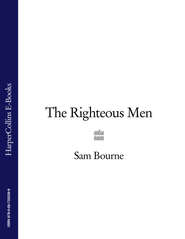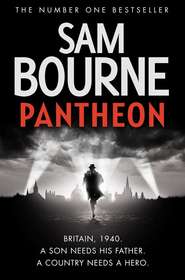По всем вопросам обращайтесь на: info@litportal.ru
(©) 2003-2024.
✖
The Last Testament
Автор
Год написания книги
2018
Настройки чтения
Размер шрифта
Высота строк
Поля
It all seemed pretty straightforward. He was a hawk, determined to make his last stand by appealing to the Prime Minister direct. He got too close and was gunned down. Simple.
And yet there was something about what Rachel Guttman had said, and the way she had said it, that nagged at her. She had insisted that her husband had seen something – a document, a letter – that would change everything, in the last three days of his life. Maggie looked at her wrist, where the widow had gripped her so tightly. Poor woman. To be so stricken with grief that she had started ranting at her, a total stranger. Maggie had seen other people who had lost loved ones trying, madly, to detect some higher meaning in the violent death of their husband, wife, mother or child. Claiming that the slain person had somehow foreseen their own death; that they were about to do one last great deed; that they were poised to make everything right. Maybe Rachel Guttman was suffering from that same, melancholy delusion. Maggie rubbed her wrist.
There was a knock on the door. Without waiting for an answer, Davis walked in.
‘OK, the United States has decided to deploy its secret weapon.’
‘Oh yes, what's that?’
‘You.’
Davis explained that, as feared, the Palestinian delegation to Government House were now threatening to pull out over the death of the archaeologist. They suspected the hand of Israel. ‘We need you to talk them off the ledge. Deputy Secretary wants to see you in five minutes.’
Maggie collected her papers and moved to turn off the computer. She was about to shut down the website of the Israeli newspaper, Haaretz, the last one she had searched for information on Guttman, when she changed her mind, quickly checking the front page, just in case there was fresh word on the Nour case.
There was a news story, which she skim-read. It was written up as a straight collaborator killing: no mention of any possible Israeli involvement. But accompanying it was a picture of the dead Palestinian, what seemed to be a snap from a family album. The archaeologist, with his thick salt-and-pepper moustache, was smiling at the camera, holding up a glass. A disembodied arm was draped over his shoulder, as if he were posing with an unseen friend.
Maggie got up to go, following Davis, but something drew her back to the picture on the screen. She had seen something familiar, without being able to identify what it was. She looked at Nour's eyes, but they gave nothing away. What was it she had seen? For a fleeting moment, she thought she had grasped it – only for it slip back below the surface, out of reach. She would see it again, though – and much sooner than she expected.
CHAPTER TEN (#ulink_0695f298-0686-58ca-bdc2-afc250811a5e)
Ramallah, the West Bank, Tuesday, 4.46pm
Her first surprise was at the brevity of the journey. She had climbed into the back of one of the consulate's black Land Cruisers only fifteen minutes earlier and yet now her driver, Marine Sergeant Kevin Lee, was telling her that she was crossing the Green Line, out of ‘Israel-proper’ and into the lands the country took in the Six Day War of 1967.
But it was an invisible border. There were no markings, no guards, no welcome signs. Instead, they were in what looked like another residential Jerusalem neighbourhood – one apartment building after another in that smooth, gleaming stone – when Lee gestured, ‘This is Pisgat Ze'ev. Even the people who live here don't realize this is across the Green Line.’ He turned to look at Maggie. ‘Or they don't want to realize.’
Maggie stared out of the window. No wonder everything about these negotiations was a nightmare. The plan was for Jerusalem to be divided between the two sides – ‘shared’ was the favoured US euphemism – becoming a capital for both countries. But she could now see that splitting it would be all but impossible: east and west Jerusalem were like trees which had grown so close, they had become entwined. They refused to be untangled.
‘Now you get more of a sense of it,’ Lee was saying, as the road began to bend. ‘Pisgat Ze'ev on one side,’ he said, pointing to his right. ‘And Beit Hanina on the other.’ Gesturing to the left.
She could see the difference. The Arab side of the road was a semi-wasteland: unfinished houses made of grey breeze blocks, sprouting steel rods like severed tendons; potholed, overgrown pathways, bordered by rusting oil barrels. Out of the car's other window, Pisgat Ze'ev was all straight lines and trim verges. It could have been an American suburb, cast in Biblical stone.
‘Yep, it's pretty simple,’ said Lee. ‘The infrastructure here is great. And over there it's shit.’
They drove on in silence, Maggie's eyes boring into the landscape around her. You could read a thousand briefing notes and study a hundred maps, but there was no substitute for seeing the ground with your own eyes. It was true in Belfast and in Bosnia and it was true here.
‘Hold up,’ Lee said sharply, looking ahead. ‘What have we got here?’
Two thin lines of people were standing on either side of the highway.
‘Can we stop?’ Maggie asked. ‘I want to see.’
Lee pulled off the road, the gravel crunching under the vehicle's tyres. ‘Ma'am, let me get out first. To see if it's safe to proceed.’
Ma'am. Maggie tried to guess the difference in age between herself and this Marine Sergeant Lee. He could have been no more than twenty-two: she was, theoretically anyway, old enough to be his mother.
‘OK, Miss Costello, I think it's clear.’
Maggie got out of the car, to see that the people were forming a line that stretched off the side beyond the road, trailing down the hillside and into the distance. In the other direction, on the other side of the road, the same thing. Some were holding banners, the rest were holding hands. It was a human chain, breaking only for the highway itself.
Now she understood it. They were all wearing orange, the colour of the protest movement that had sprung up to oppose the peace process. She looked at the placards. With blood and fire, Yariv will go, said one. Arrest the traitors, said another. The first had mocked up a portrait of the Prime Minister wearing a black and white keffiyeh, the traditional Palestinian headdress. The second had Yariv wearing the uniform of a Nazi officer, down to the letters SS on his collar.
The woman holding the keffiyeh banner saw Maggie looking. She called over: ‘You want to save Jerusalem? This is the way!’ A New York accent.
Maggie came closer.
‘We're “Arms Around Jerusalem”,’ the woman said, handing Maggie a flier. ‘We're forming a human chain around the eternal, undivided capital of the Jewish people. We're going to stay here until Yariv and all the other criminals are gone and our city is safe again.’
Maggie nodded.
The woman lowered her voice, as if enlisting a co-conspirator. ‘If it were down to me we would have called it “Hands Off Jerusalem”. But you don't win every battle. You should stay here a while, see what true Israelis feel about this great betrayal.’
Maggie gestured towards the car, her features crinkled into an apology. As she walked back, she could hear a song drifting up from the hillside. It was out of time, as different people in different places struggled to keep up with each other; but even so it was a haunting, beautiful melody.
As Sergeant Lee ushered her back into the car and they continued on their way, Maggie thought about what she had seen. Against opposition this committed, Yariv surely had no chance. Even if he were able to make the final push with the Palestinians, he had his own people to overcome. People who were prepared to ring an entire city, day and night, for weeks or even months.
By now they were on a smooth road with hardly any traffic on it except the odd UN 4×4 or a khaki vehicle of the Israel Defence Force, the IDF. Any other vehicles, Lee explained, belonged to settlers.
‘Where are the Palestinians?’
‘They have to get around some other way. That's why they call this a bypass road: it's to bypass them.’
Lee slowed down to join a checkpoint queue. A sign in English indicated who was allowed to approach: international organizations, medical staff, ambulances, press. Below that, a firm injunction: ‘Stop Here! Wait to be called by the soldier!’
The driver reached across for Maggie's passport, wound down the window and passed it to the guard. Maggie dipped her head in the passenger seat, to get a good look at his face. He was dark and skinny, with a few random wisps on his chin. He couldn't have been more than eighteen.
They were waved through, past an empty hulk of a building that Lee identified as the City Inn Hotel. It was pocked all over with bullet holes. ‘During the second intifada they fought here for weeks. Took the IDF ages to finally clear the Pals out.’ He turned to smile at Maggie. ‘I hear the room rate's real low now.’
Just a few minutes after they had been driving through Israeli suburbia, they were in a different country. The buildings were still made of the pale stone she had seen in Jerusalem, but here they were dustier, forlorn. The signs were in Arabic and English: Al-Rami Motors, the Al-Aqsa Islamic Bank. She saw a clutch of wicker rattan chairs on a street corner, young men loafing on them, thin cigarettes between their lips. The furniture was for sale. Walking in the road, sidestepping the potholes, were children on their way from school, labouring under oversized rucksacks. She looked away.
On every wall and pasted on the windows of abandoned stores were posters showing the faces of boys and men, the images framed by the green, white, red and black of the Palestinian national flag.
‘Martyrs,’ said Lee.
‘Suicide bombers?’
‘Yeah, but not only. Also kids who were shooting at settlers or maybe trying to launch a rocket.’
The car dipped suddenly, caught by a deep pothole. Maggie kept staring out of the window. Here, as in almost every other place she had worked, the two sides had ended up killing each other's children. It seemed everyone doing the killing or being killed was young. She always knew that, but in the last few years she couldn't see anything else. Time after time, in place after place, she had seen it and it just sickened her. An image, the same as always, floated into her head and she had to close her eyes tight to push it away.
They threaded through crammed roads, passing a coffee shop filled with women in black head-scarves. Lee dodged a couple of wagons, pulled by young boys, loaded with fruit: pears, apples, strawberries and kiwis. Everyone used the road: people, cars, animals. It was slow and noisy, horns blaring and beeping without interruption.
‘Here we are.’
They had parked by a building that looked different from the others: it was substantial, the stone clean, the glass in the windows solid. She saw a sign, thanking the government of Japan and the European Union. A ministry.
Inside, they were ushered into a wide spacious office with a long L-shaped couch. The room was too big for the furniture inside it. Maggie suspected that grandiosity had dictated the size, with practicality and need coming a remote second.





